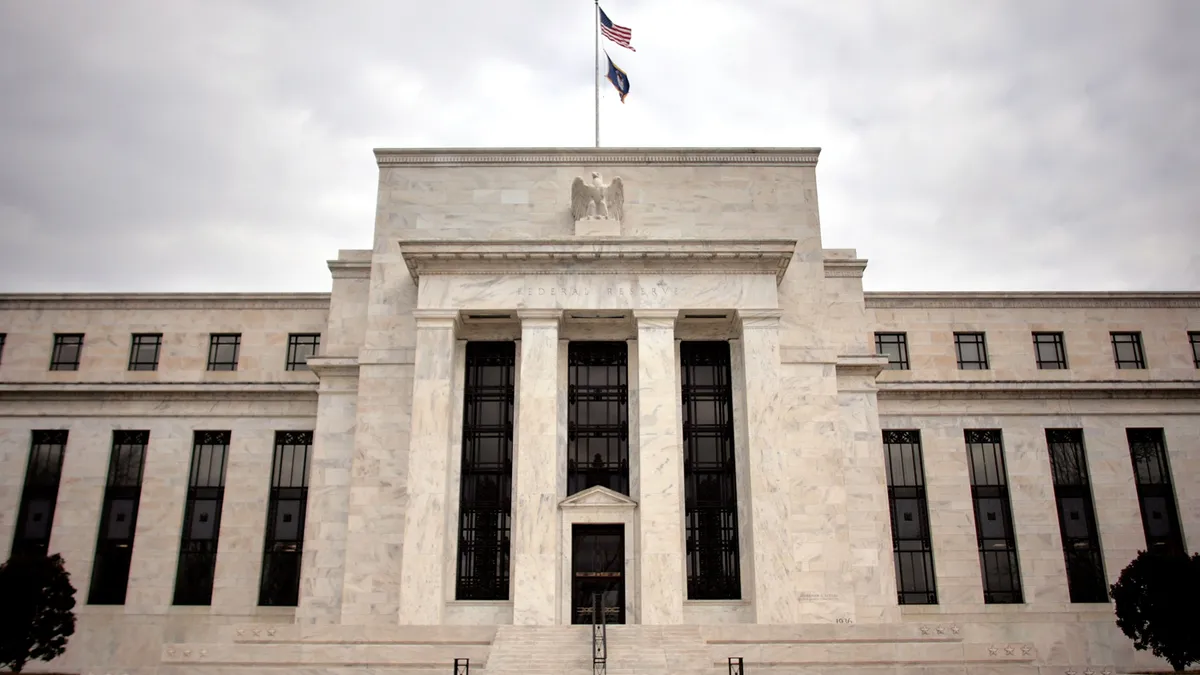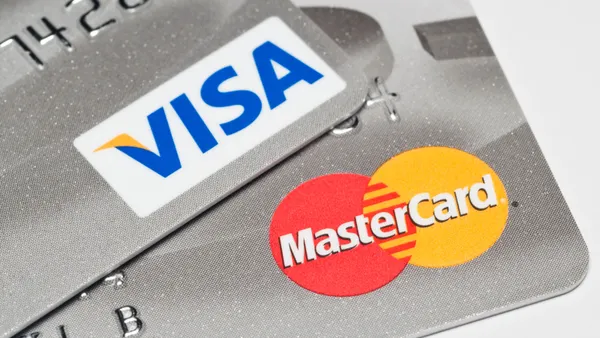Dive Brief:
- The Federal Reserve extended the period during which it will accept public comments on its October proposal lowering the cap on interchange fees that can be charged for processing debit card transactions, according to a Monday notice. The deadline was postponed three months to May 12, instead of Feb. 12.
- The central bank also provided more data for would-be commenters and others to consider in assessing the proposed revisions to Regulation II. That data showed that the average per-transaction cost for processing the payments has drifted downward since the central bank started collecting that information in 2009.
- “The Board extended the comment period to allow the public more time to analyze the proposal and prepare their comments,” the notice said.
Dive Insight:
Debit cards are offered by traditional banks, as well as neobanks such as Varo and fintechs such as Bluevine, as a way for account holders to use funds in an account to pay for goods and services. Transactions paid for with the cards are typically routed over networks operated by Visa and Mastercard.
Currently, the Fed’s cap on debit interchange fees is set at 21 cents plus 0.05% of the value of the debit transaction, though there is a one-cent rebate if the issuer provides fraud protections. The fee cap applies to banks and financial institutions that have $10 billion, or more, in deposits. The rule derives from the Durbin Amendment to the 2010 Dodd-Frank Wall Street Reform and Consumer Protection Act.
In a November letter to the Fed, a group of bank organizations, including the American Bankers Association, The Clearing House and the Bank Policy Institute, requested an extension of the time period for commenting on the proposal, suggesting at least 180 days was a more appropriate period.
“To thoughtfully opine on the (notice of proposed rulemaking), the Associations need this additional time to collect current and historical data from our members and analyze such data against the Board’s proposed interchange fee caps,” the bank groups said in their Nov. 22 letter.
Aside from more than 1,500 form letters, the Fed has so far received 26 comments, according to its website repository for posting the input, some of which came in anticipation of the Fed proposal. Commenters have also included FMI - The Food Industry Association; the National Association of Convenience Stores; and Consumers Credit Union.
After the Fed announced the fee cap revision last October, bank interest groups opposed it while retail interest groups said it didn’t go far enough. For instance, the American Bankers Association opposed the plan, saying the Fed’s assessment of the situation was flawed and that the proposal would make services more expensive for consumers and ultimately reduce revenue for smaller banks. Meanwhile, the National Retail Federation said the Fed’s move wasn’t “proportional to banks’ falling costs.”
Merchant groups were arguing for changes to the debit interchange rate even before the Fed made its proposal. “We request that the Federal Reserve initiate a new rulemaking to reduce regulated debit interchange fees to a level that is reasonable and proportional to costs, remove the ad valorem fee for fraud, and remove the 1 cent per transaction fraud adjustment,” the FMI and NACS said in a December 2022 comment letter.
In addition to cutting the maximum fee that can be imposed by the large debit card issuers, the Fed’s proposal seeks to establish “a regular process for updating the maximum amount every other year going forward.” By law, the Board is tasked with determining whether the fee is “reasonable and proportional” relative to issuer costs.
The central bank noted the additional data it provided this week pertains only to what it calls the “base component” for determining the debit fee cap, and not an add-on amount called the “ad valorem component.” It also doesn’t affect the other amount used to take into account issuer anti-fraud costs.
Correction: The story has been updated to say that the FMI and NACS sent their letter in 2022.










